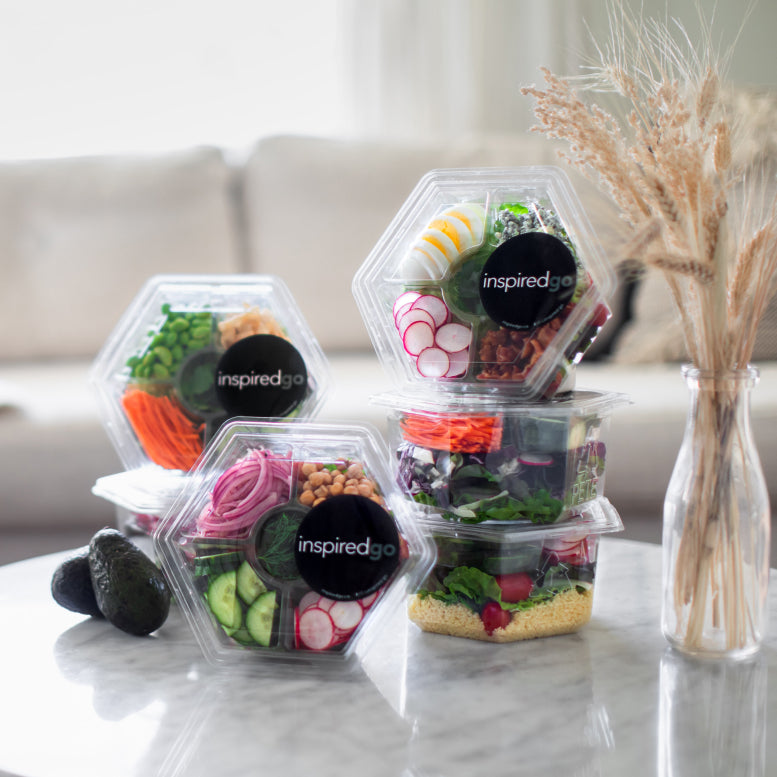Vegetarian Keto Recipes
Table of Contents
1. Exploring the World of Vegetarian Keto Recipes
2. Getting Results Without the Routine Overhaul
3. Fueling a Body That Performs
4. Inspired Go: Your Shortcut to Keto Without the Prep
1. Exploring the World of Vegetarian Keto Recipes
Venturing into the realm of vegetarian keto recipes can be a delightful journey of discovery for those seeking a balanced yet restrictive diet. These nourishing meals blend the plant-based approach of vegetarianism with the low-carb, high-fat principles of the ketogenic diet. From vibrant salads, hearty bowls, and nutrient-rich breakfast items to satiating dinner options and snack packs, the variety is immense. By harnessing the power of locally sourced ingredients and employing chef-inspired culinary techniques, these recipes deliver not just on taste and nutrition, but also on convenience. They help save valuable time, reduce food waste, and contribute to a sustainable lifestyle. Moreover, these recipes come with detailed nutrition information, ensuring you make informed dietary choices. While the idea of merging a vegetarian and keto diet may seem challenging, it can ultimately lead to a highly rewarding culinary experience.
Order fresh salads today →


2. Getting Results Without the Routine Overhaul
Making changes to your diet doesn’t have to mean overhauling your entire routine. With keto, small shifts can yield big results. Start with one balanced, low-carb meal a day—something built around clean protein, healthy fats, and non-starchy vegetables—and let the benefits grow from there. You’ll likely notice increased energy, fewer cravings, and improved digestion without drastically altering your schedule. That’s the power of meals that do the work for you. Instead of planning every detail or reinventing your grocery list, keto offers a flexible way to optimize your nutrition without micromanaging every bite. With the right approach, keto integrates naturally into a busy life—whether you’re managing meetings, workouts, or family dinners. The shift is subtle, but the results are not. With each consistent choice, your body responds.
Choose your salads and schedule delivery →
3. Fueling a Body That Performs
Keto is a way of eating that aligns with how the body wants to operate—steady, efficient, and well-fueled. By removing excess sugars and empty carbs, you allow fat to become your body’s primary energy source. That shift can lead to clearer thinking, more endurance, and fewer crashes in energy throughout the day. But none of that happens without consistent fuel. Meals that deliver high-quality fat, protein, and fibre support this metabolic shift while also keeping hunger at bay. Whether you’re working toward weight goals or simply aiming to feel more energized, keto offers a direct path to improved performance—mentally and physically. When you treat food as fuel, you’ll notice it starts working with you, not against you.
Get fresh salads and snacks delivered →
4. Inspired Go: Your Shortcut to Keto Without the Prep
At Inspired Go, we believe the power of keto should be accessible to everyone—without the extra effort. That’s why we’ve crafted a rotating menu of keto-friendly meals that are low in carbs, high in nutrition, and completely ready to enjoy. Each meal is chef-designed and nutritionist-informed, using whole ingredients like leafy greens, roasted vegetables, clean proteins, and satisfying healthy fats. You won’t find hidden sugars, starchy fillers, or processed substitutes—just real food, balanced for flavour and function. Our meals arrive fully prepped, portioned, and fridge-ready with a five-day shelf life, so you can plan your week without added stress. Whether you’re just starting keto or have been low-carb for years, Inspired Go takes the planning, prepping, and guesswork off your plate. Instead of counting macros or meal prepping every Sunday, you can enjoy structured, nourishing meals that fit your goals. With Inspired Go, keto becomes something you can actually stick with—and enjoy.
Try our fresh, ready-to-eat salads →
Frequently Asked Questions
A vegetarian diet focuses on plant-based foods, eliminating meat, poultry, and fish while including fruits, vegetables, grains, legumes, nuts, and seeds. Depending on the type of vegetarianism, it may also include animal-derived products like dairy and eggs. Popular variations include lacto-ovo vegetarian (includes eggs and dairy) and lacto-vegetarian (excludes eggs but includes dairy). The diet is often chosen for ethical, environmental, or health reasons and supports a nutrient-dense lifestyle when properly balanced.
Vegetarian foods include a wide variety of plant-based options like fruits, vegetables, whole grains, legumes, nuts, and seeds. Dairy products such as milk, cheese, and yogurt, as well as eggs, are included in lacto-ovo vegetarian diets. Vegetarian-friendly dishes range from hearty grain bowls and vegetable curries to pasta, soups, and salads. Many processed foods, such as chips or baked goods, can also be vegetarian, though reading labels is key to avoiding hidden animal-based ingredients.
Yes, many vegetarians eat eggs, depending on their dietary preference. Those following a lacto-ovo vegetarian diet include both eggs and dairy products, while lacto-vegetarians exclude eggs but consume dairy. Eggs are an excellent source of protein, vitamins, and minerals, making them a valuable addition to a vegetarian diet. However, vegans avoid eggs entirely, as their diet excludes all animal-derived products, including dairy and honey.
Vegetarians can meet their protein needs by incorporating a variety of plant-based and animal-free sources. Protein-rich options include legumes (lentils, chickpeas, black beans), tofu, tempeh, nuts, seeds, and whole grains like quinoa. For those who consume dairy and eggs, options like Greek yogurt, cheese, and eggs provide additional high-quality protein. Combining different plant proteins, such as rice and beans, ensures a complete amino acid profile, supporting muscle repair and overall health.
Yes, eggs and cheese are allowed on a lacto-ovo vegetarian diet, which includes both dairy products and eggs alongside plant-based foods. These ingredients are excellent sources of protein, calcium, and other essential nutrients. Lacto-vegetarians exclude eggs but include cheese and other dairy products. Vegans, however, do not consume eggs, cheese, or any other animal-derived products, focusing solely on plant-based foods and alternatives.

